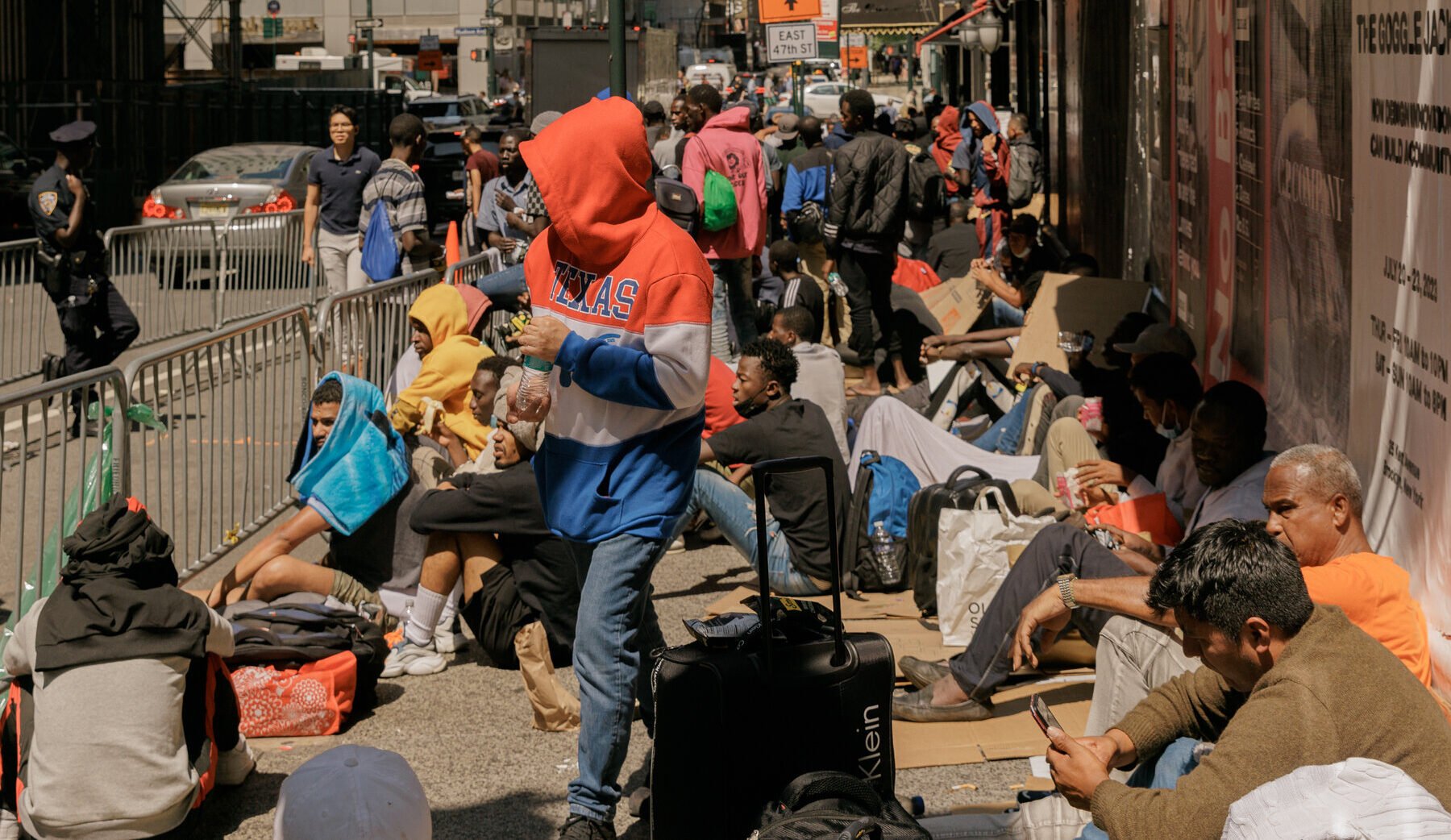As the Trump administration clamps down on illegal immigration, dealing with the influx of migrants from Central and South American countries has become a top priority.
U.S. Department of Homeland Security Secretary Kristi Noem made a historic trip to several South American countries last week to boost international relations and restrict illegal immigration.
Chile agreed to accept all U.S. Immigration and Customs Enforcement charter flights, while Ecuador agreed to a law enforcement officer liaison exchange program with U.S. Customs and Border Protection.
In Argentina, Noem met with Argentine officials to kick-start Argentina rejoining the Visa Wavier Program, which will expedite travel between the two countries.
“DHS is working with Argentina to make sure criminals, traffickers, and terrorists have nowhere to run— on either side of the hemisphere,” the agency posted on X.
Under @Sec_Noem’s leadership, DHS is working with Argentina to make sure criminals, traffickers, and terrorists have nowhere to run— on either side of the hemisphere.
✅ Statement of Intent to kickstart Argentina rejoining Visa Wavier Program
✅ Security Alliance for Fugitive… pic.twitter.com/GgKFBY4ct9
— Homeland Security (@DHSgov) July 29, 2025
In recent years, illegal immigration to the U.S. moved beyond Mexico to Central and South American countries. Noem’s tour included visits to Ecuador, Chile and Argentina, which are all in South America.
Nearly 10 million unvetted immigrants from across the globe paid big money to safely navigate through South and Central American countries to reach the U.S., according to February 2024 data from CBP, per Fox News Digital.
The Biden administration blamed it on violence and economic instability rather than his failed leadership, including policies such as catch-and-release, mass parole and temporary work permits for immigrants with little threat of deportation.
Noem has been charged with tightening border security, along with encouraging lawful travel and keeping criminals out of America.
Last week, Noem met with Ecuadorian President Daniel Noboa and other officials to highlight reforms to make lawful travel and trade safer and more efficient.
Secretary Noem and Interior Minister John Reimberg also signed a memorandum of understanding for an exchange program between CBP and the National Police Department of Ecuador, according to an agency release.
The partnership will make it easier to identify, track down and intercept threats to both nations. An Ecuadorian law enforcement liaison will be embedded within CBP’s National Targeting Center to help identify dangerous travelers and illicit cargo.
“In the war against drugs and crime, information is our strongest weapon,” said Noem upon signing the document. “The National Targeting Center works nonstop to catch dangerous individuals, terrorists and gang members attempting to travel to the United States.”
Noem visited Chilean Minister of Public Security Luis Cordero Vega and other officials for the first time to discuss how the two countries can work together to deter illegal immigration and take down criminals.
Besides accepting ICE flights, Chile agreed to enroll in Electronic Nationality Verification and the Security Alliance for Fugitive Enforcement programs, according to a DHS release.
“America and Chile deepened our mutual commitment to security by discussing how we can work together on several key information sharing initiatives in the near future,” Noem said.
SAFE is a fugitive enforcement and information sharing partnership that operates primarily out of the Northern Triangle countries of El Salvador, Guatemala and Honduras under the respective host nation’s Assistant Attaché for Removal, according to ICE.gov. It began as a pilot program in El Salvador in 2012 to establish criminal history information sharing.
Earlier this year, El Salvador and Guatemala renewed their participation in SAFE, allowing for deportee fugitives with active warrants to be identified and arrested upon arrival in their home country.
Secretary Noem and Chilean officials signed a letter of intent for continued partnership on Biometric Identification Transnational Migration Alert that will expand the data sharing program between the two countries.
“Chile also deserves applause for its efforts to stay compliant with our Visa Waiver Program and for its law enforcement’s efforts to stop criminals heading towards America from traveling through its country,” Noem said.
Noem kicked off her South American travels with a visit to Argentina, where she met with Argentine President Javier Milei and others on several national security matters.
The two countries agreed to work toward Argentina’s reentry to the Visa Waiver Program, which allows most citizens or nationals of participating countries to travel to the United States for tourism or business for stays of 90 days or less without obtaining a visa.
Argentina was removed from the Visa Waiver Program in 2002, as partnering countries must meet strong security requirements, according to a release from the U.S. Embassy in Argentina.
“Argentina now has the lowest visa overstay rate in all of Latin America and 25 percent more Argentines traveled to the U.S. in the first four months of this year compared to last year—the biggest jump of any of the top 20 international arrivals,” Noem said. “That is why we are now taking steps to allow Argentina back into the Visa Waiver Program.”
Argentina also agreed to participate in the Security Alliance for Fugitive Enforcement, and implement the Electronic Nationality Verification program to expedite removals of Argentine nationals who are in the United States illegally, according to a news release.
During the visit, Noem toured Campo De Mayo by horseback with Minister of National Security Patricia Bullrich. Noem’s tour made her the first United States cabinet official to visit Campo De Mayo, one of Argentina’s most significant and largest military institutions.



